Both these tools offer a range of features that help teams organize, collaborate, and complete their tasks efficiently. However, each tool has its unique strengths and weaknesses, which can make it challenging to determine which one is the best fit for your team.
In this article, we will compare Asana and Trello, highlighting the key differences and similarities between the two. We will explore the various features of each, such as their user interface, task management capabilities, integrations, and pricing plans. Additionally, we will examine the types of teams that each tool is best suited for, as well as the overall user experience.
Whether you are a small startup or a large enterprise, this article will provide you with the information you need to know about selecting the perfect task management tool for you.
What is Asana?
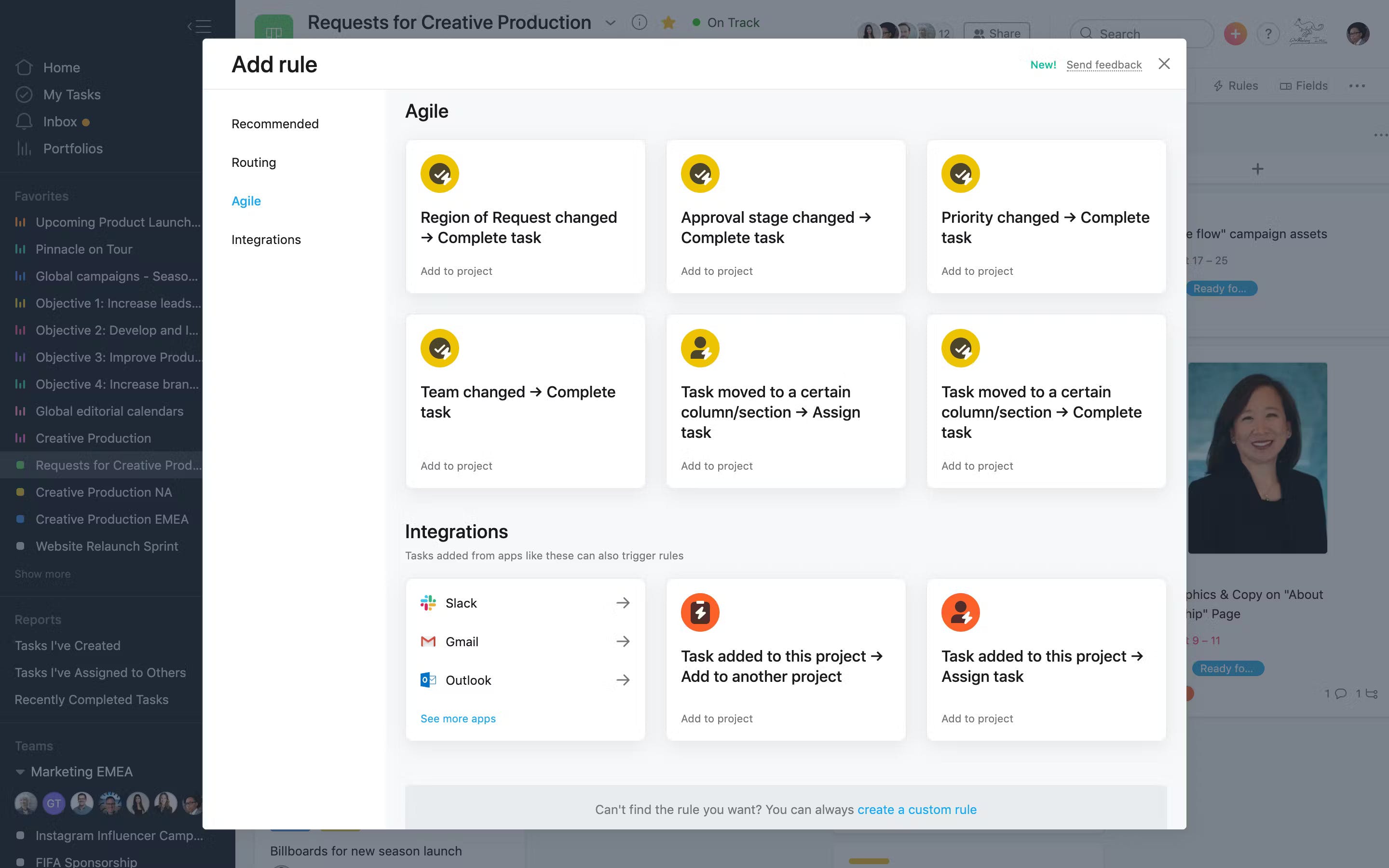
Asana is a web-based project management tool designed to help teams and individuals track their work and manage their projects. It allows users to create projects, assign tasks to team members, set due dates, and collaborate on projects in real-time using a range of features including task lists, calendars, timelines, and boards.
It also offers advanced features such as task dependencies, custom fields, and automation rules, and integrates with a wide range of other tools, including Google Drive, Dropbox, Slack, and more, making it easy to incorporate into existing workflows.
There’s both free and paid plans available, with paid plans offering more advanced workflow and features reporting.
Asana: At a glance
Key features: Multiple project views, Project and tasks creation, reporting dashboards, mobile app available
User interface: List, Board, Timeline, Workflow, Calendar views, customization options
Popular integrations: Slack, Zoom, Google, Microsoft, Salesforce, JIRA Cloud, Harvest
Best for: Mid-size-larger teams, for project managers who are managing multiple projects across departments
Pricing Plans: Free basic plan, Premium $10.99 p/m, Business $24.99 p/m
Pros of Asana
Multiple project views
Not only does Asana use Kanban boards to help you visualize tasks through all stages of the workflow, you can also view your tasks in a List, Workflow, Calendar or Timeline format.
Time Tracking
Available for Business and Enterprise customers, Asana’s time tracking feature allows you to estimate the time needed to complete a task, then record the actual time spent. This allows you to make better decisions about workload and resourcing. It’s a useful feature for forecasting and budgeting too.
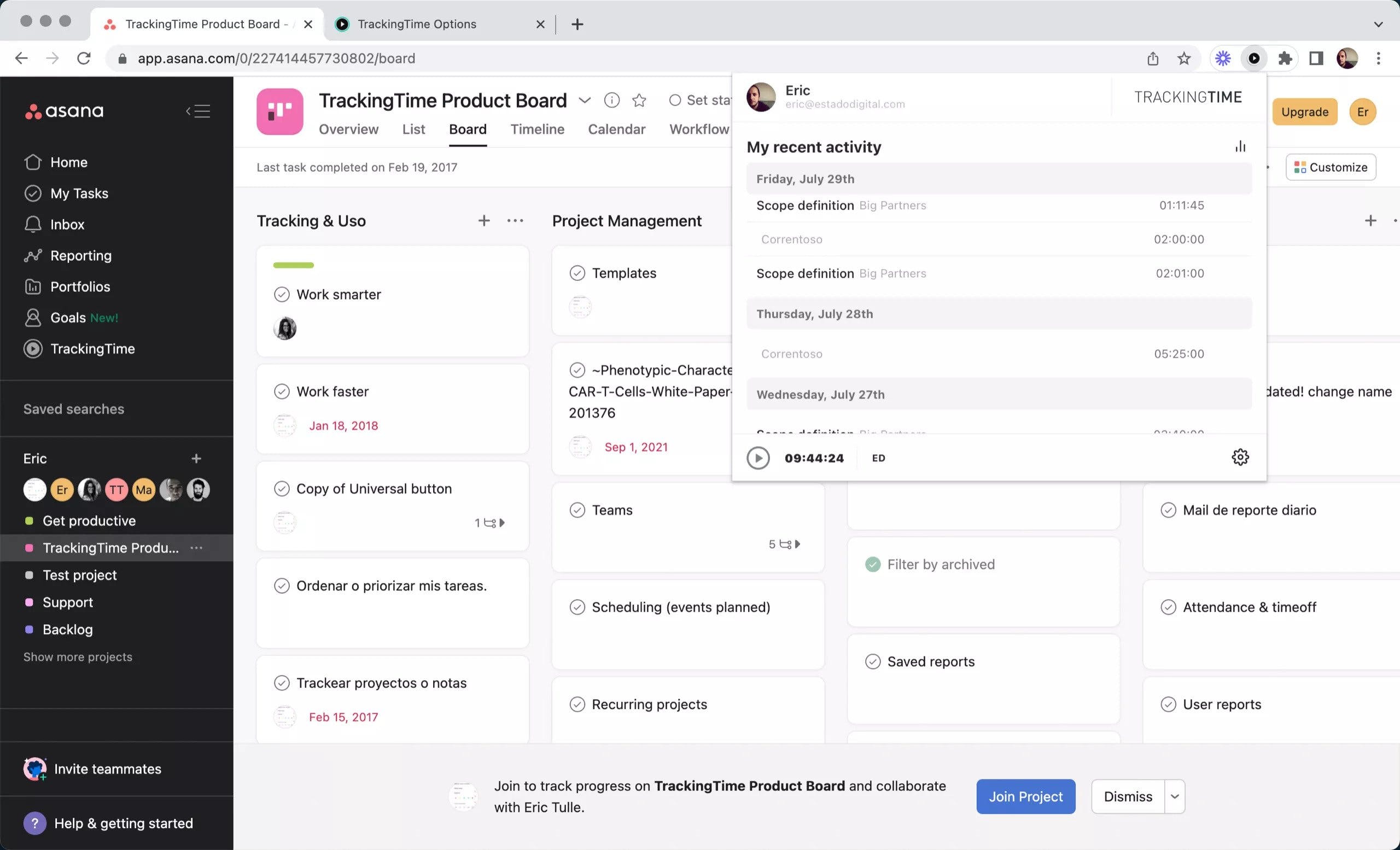
Real-time collaboration
Users can comment on tasks, share files, and collaborate in real-time, which helps to streamline communication and ensure everyone is on the same page. The tool can also send email alerts to remind users when their tasks are due.
Tasks dependencies
Asana offers the ability to set task dependencies enabling a project manager to determine what order tasks should be completed in. Using this feature, you can mark a task as unable to start until another task is completed.
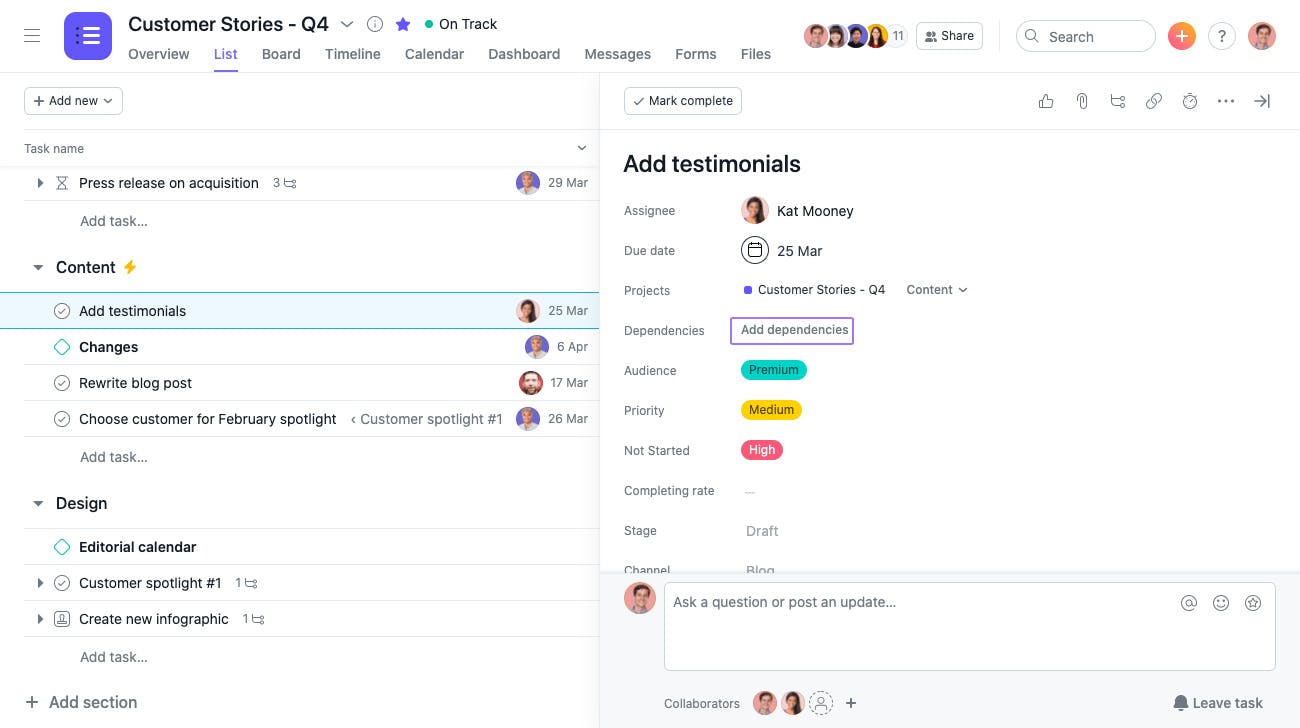
Cons of Asana
It can feel overwhelming
If you’re new to Asana, you might initially be overwhelmed if you haven’t used project management tools before. Although the option to view your tasks in different modes means you can use it the way you want to, the tool tends to show the List view first which can make things feel a little busy. (If you're looking to explore other platforms with different interfaces be sure to check out our breakdown of the best Asana alternatives.)
Could be more customizable
Asana is certainly customizable, allowing users to create custom fields, templates, and workflows, and even change the color of the background, but compared to Trello it does lack a bit of personality and visual flair.
Only one person per task
Asana assigns one person per task to avoid any confusion regarding task ownership. However, this can pose difficulties if a task requires the involvement of multiple people, or if the originally assigned individual is unavailable and the task needs to be reassigned to someone else on the team.
Read Asana reviews from our community
What is Trello?
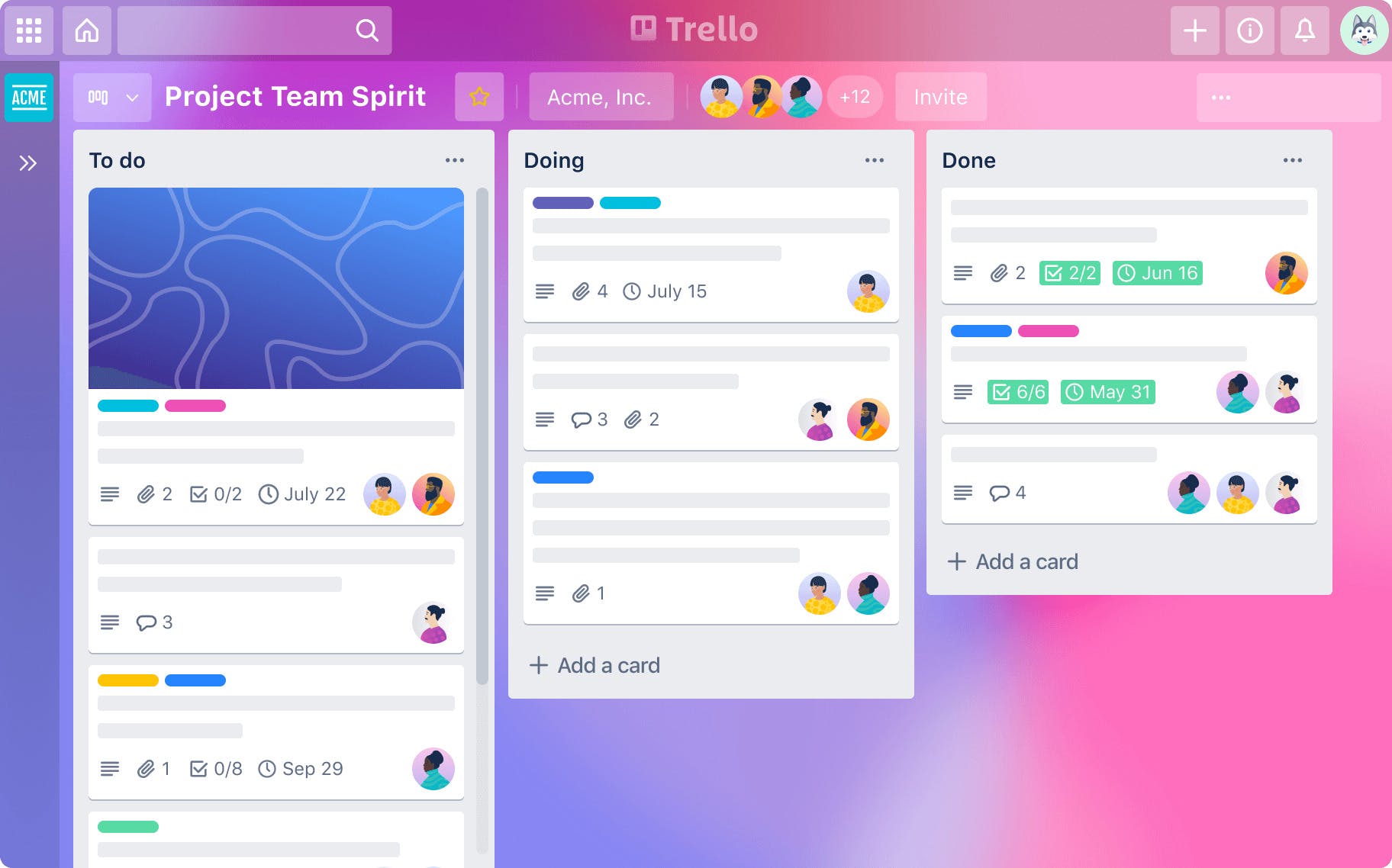
Trello uses a visual board-based approach to help teams organize and manage their tasks and projects. Trello's boards are made up of Lists, which contain cards that represent individual tasks. Users can move cards between lists to track progress, add comments, labels, and due dates to cards, and attach files and checklists to cards. Trello also offers automation features, which allow users to streamline their workflows and automate repetitive tasks.
Both free and paid plans are available, with paid plans offering more advanced features and functionality, such as the unlimited Power-Ups, custom backgrounds, and more automation capabilities.
Trello: At a glance
Key features: Intuitive interface, ability to set up automations and rules, plenty of add-ons, mobile app available
User interface: Boards, List and Cards, Checklists, customization options
Popular integrations: Slack, Confluence, Google, Jira
Best for: Individuals, Small teams, remote teams
Pricing Plans: Free plan, Standard plan $5 p/m, Premium $10 p/m, Enterprise $17.50
Pros of Trello
Easy to use
Trello is one of the easiest project management tools to jump into if you’ve never used one before. Creating Lists can really be as simple as organizing your thoughts with: ‘To do’, ‘doing’ and ‘done’ labels. You can easily create, remove and rename your Lists at any time, and the ability to drag-and-drop cards is a great feature that makes the platform feel flexible and intuitive.
High level of customization
One of the advantages of Trello is how personal the platform can feel, thanks to its impressive range of customization features. Not only can you change colors, you can use a custom image as your background, including uploading your own photograph, or get creative with a Team Directory board featuring each member of your team with the card cover as their photo.

Task automation
Trello uses a feature called Butler that allows you to set up automations, rules, and commands on your boards that cuts down on the repetitive work. This gets pretty handy when it comes to your ‘Done’ list. You can have Butler automatically check the due date, cross off all the items in the checklist, and remove all members from the card.
Add-ons and integrations
Trello uses an add-on system called Power-Ups which allows users to bring additional features into boards. This allows you to introduce a wealth of new features and integrations to the platform, from analytics reporting to additional file management services.
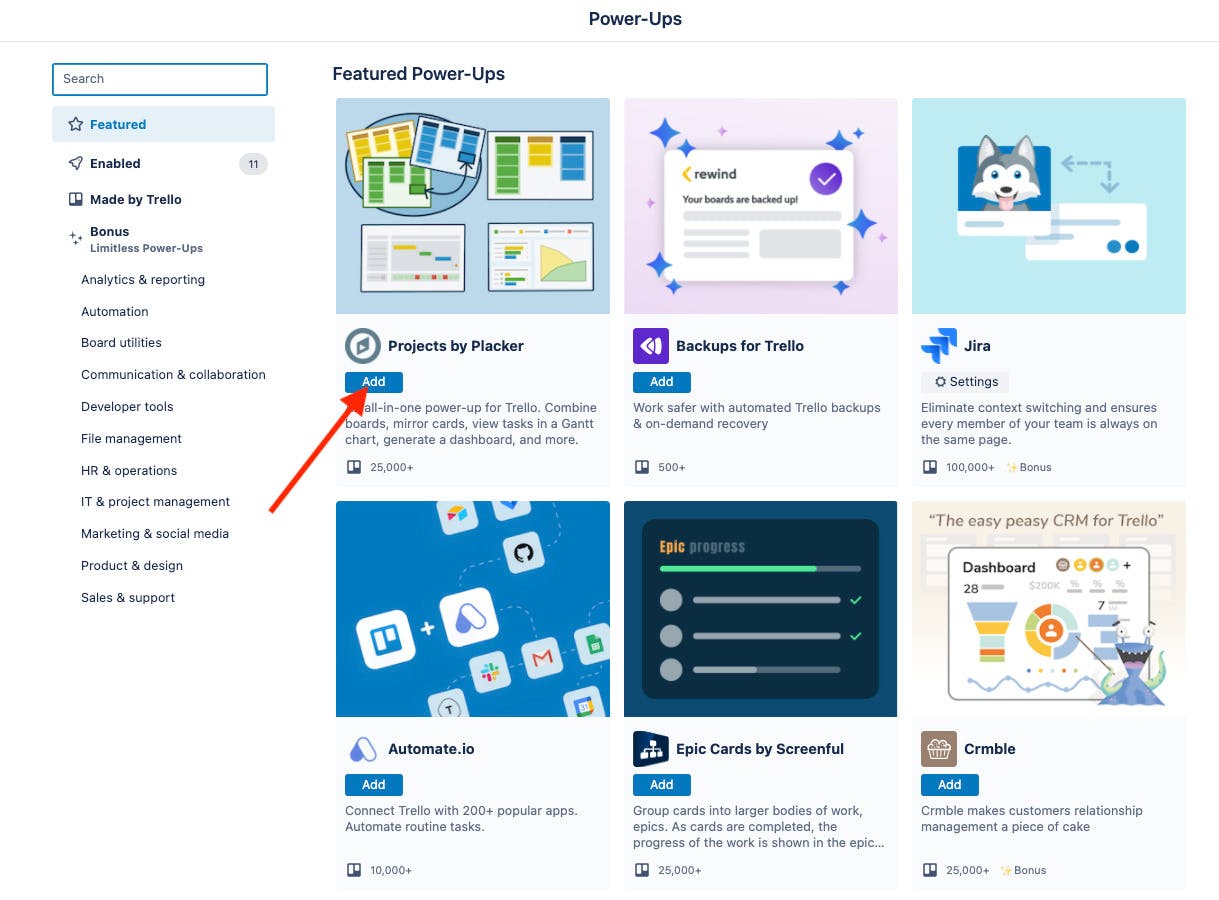
Cons of Trello
Can become unwieldy for larger teams
Trello can become cumbersome to use if the number of users and boards increases. Some users may find it difficult to manage and collaborate with larger teams using Trello.
Only uses Kanban boards
Whether this is a downside really depends on your perspective. If you love viewing tasks using Kanban boards, then you’ll love how easy Trello is to view but it’s not always the most ideal method for managing complex projects.
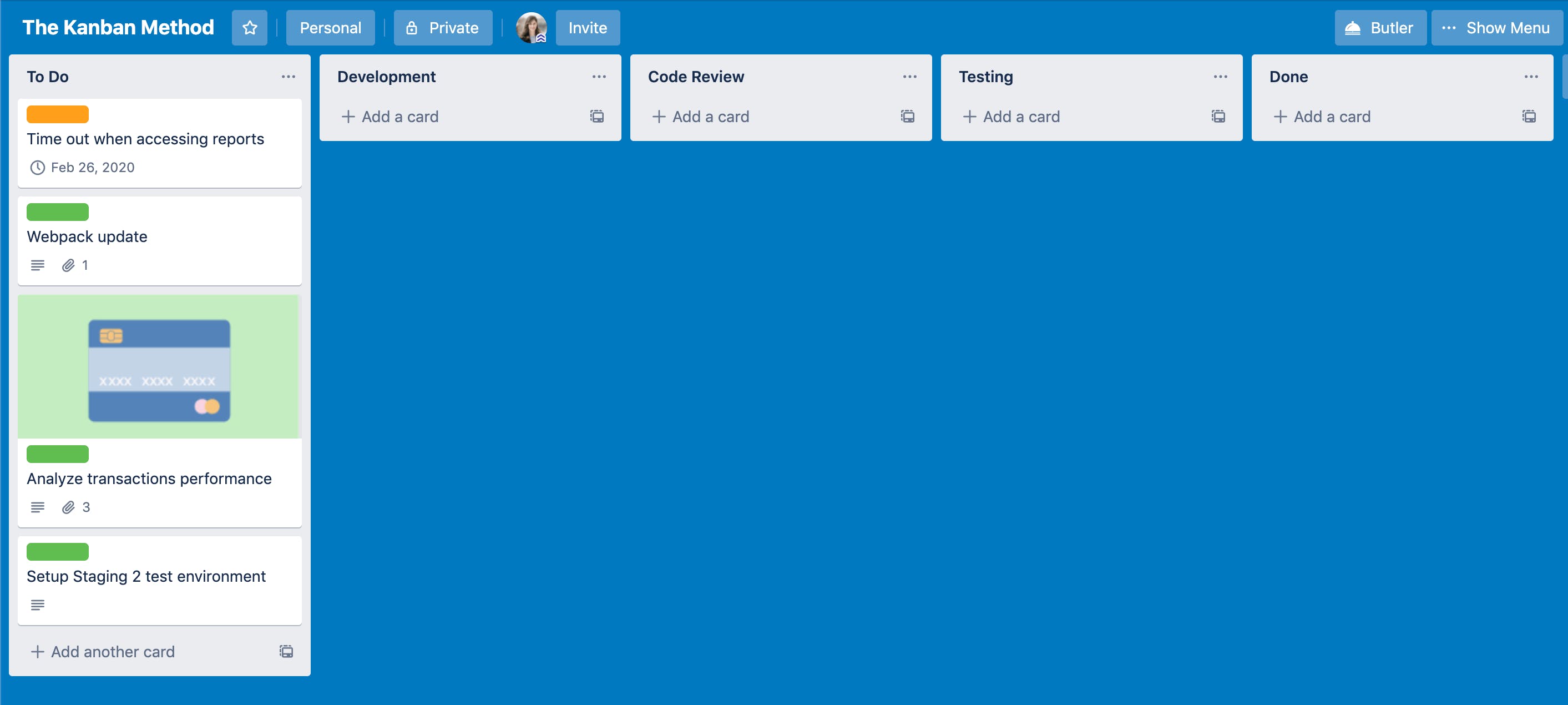
Relies on add-ons for advanced features
Trello is a fantastic tool for general project management but it does lack some advanced project management features straight out of the box. The platform relies on its Power-Up add-ons to add more advanced features, such as detailed data reporting. (If you're looking to explore other project management tools check out our list of the best Trello alternatives)
Not ideal for more complex projects
Additionally, Trello may not be the best choice for agile teams or for those who frequently carry out more complex projects. For example, it lacks the ability to create roadmaps and doesn't provide more granular insights into a workflow.
Read Trello reviews from our community
What are the similarities between Trello and Asana?
Both Trello and Asana allow users to create tasks, assign them to team members, set due dates, and add comments and attachments and include collaboration features, such as commenting, mentions, and the ability to share boards or projects with team members.
Both tools integrate with a wide range of other tools and services, such as Google Drive, Dropbox, Slack, and Zapier, which allows users to connect their work across different platforms.
Asana vs Trello: Which is better?
If you haven’t used any form of workplace task management tool before, Trello is a great choice for project management newbies. It’s designed to be user-friendly and easy to use with a focus on visual organization. Its flexible and intuitive approach is particularly perfect for individuals, smaller teams and remote teams thanks to its high level of personalization and ease of use.
Asana typically offers a more detailed look at workflows and has the ability to create task dependencies to determine the order in which activities need to be performed.
Both tools have their strengths and weaknesses, and it's important to consider factors like team size, project complexity, and budget before making a decision.

